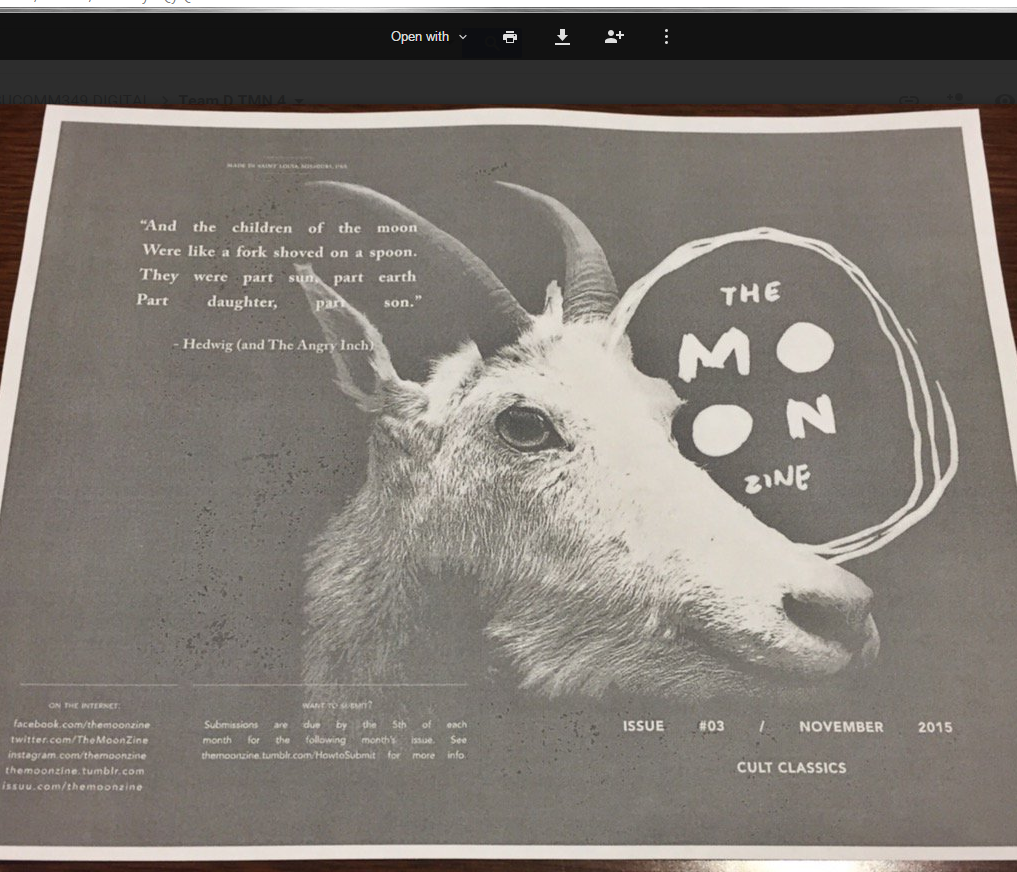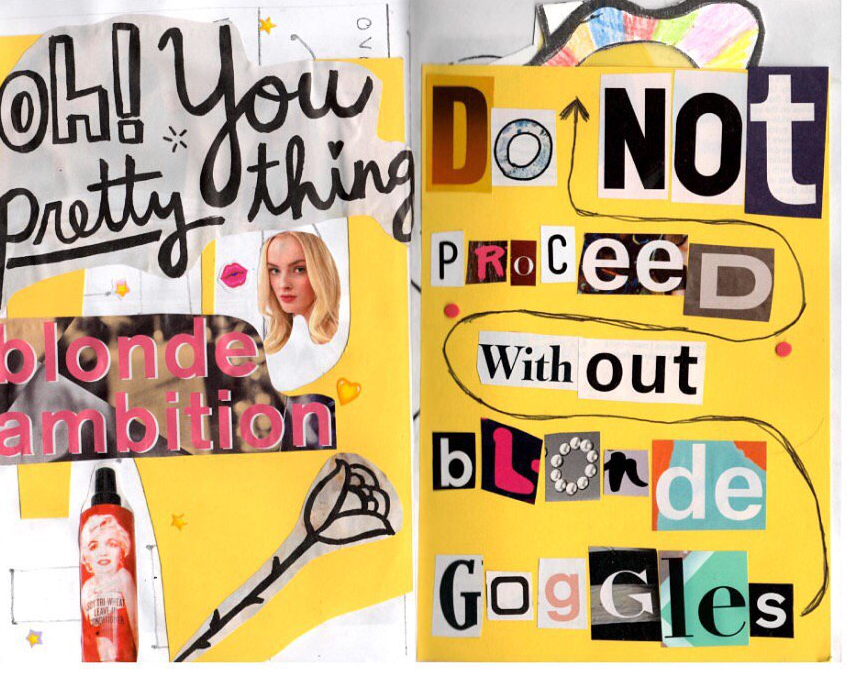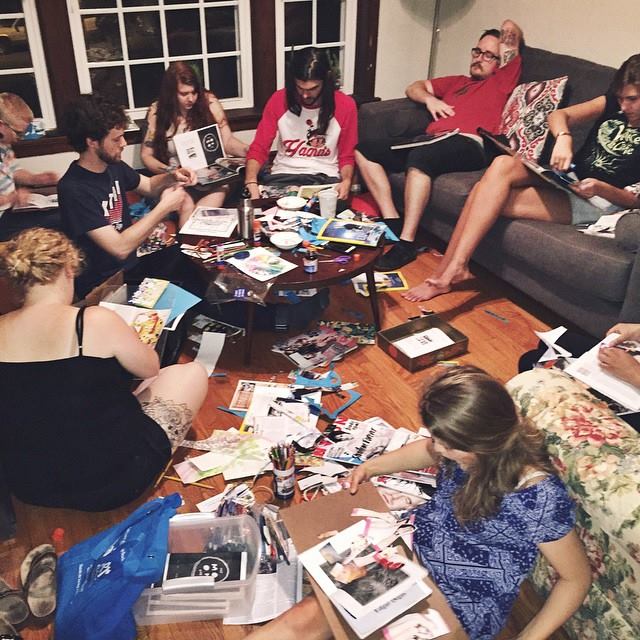
A new out-of-town independent publication has arrived in Kirksville during fall 2015.
A ‘zine — pronounced “zeen” — is a self-published, non-profit magazine. It is often marketed towards niche audiences and presented in an unpolished or unusual design. ‘Zines are most commonly associated with DIY culture, but anyone can make a ‘zine since they are published independently.
A group of recent Truman State alumni started Moon Zine in St. Louis during the late summer of 2015. Each issue has a different theme and contains poems, short stories, artwork and collages printed on recycled paper. To publish Moon Zine, the alumni collage half of the pages, print them, fold them and then sew the pages together with a sewing machine. The ‘zine is distributed for free in Columbia, Springfield, St. Louis and now Kirksville.
Wes Harbison is one of four official publishers of Moon Zine. He describes Moon Zine as a monthly publication by a group of friends who wanted to express their creativity. The group creates each issue by hand so the arrangement is a little different in each ‘zine.
Harbison, who organizes the layout, says he usually spends two weeks on design and layout alone. He says the other half of the month is dedicated to putting the publication together and distributing it, and about three hours are devoted specifically to collaging the pages.
“We have a very [do it yourself] mindset about the whole thing, so we like doing stuff by hand, but we only have so much time,” Harbison says.

Harbison says anyone is eligible to be published in Moon Zine. The ‘zine will even publish its first international submissions from Europe in their December issue. He says they recieve more submissions than can be published, but each submission is considered as long as it fits that month’s theme. The Moon Zine currently is looking for submissions for their January issue, which follows a food theme.
Harbison says he has high hopes for the future of Moon Zine. He says he hopes they’ll have a five year anniversary celebration
“We’re off to a good start,” Harbison says.
Junior sociology major Keaton Robertson heard about Moon Zine through mutual friends and Moon Zine’s Facebook and Tumblr. He says he had been interested in ‘zines in the past, but had never contributed to one until this fall.
“I thought they were cool in high school, but I didn’t even know how to pronounce ‘zine,” says Robertson. “I used to call them ‘zynes.’”
After submitting a couple of poems to Moon Zine, he was published in their first issue and continues to submit pieces for each month’s new theme. Although he has not been part of the collaging process yet, Robertson says he can tell the Moon Zine staff puts a lot of time and effort in their craft.
“A lot of these former Truman students were communication or journalism majors,” says Robertson. “They know how aesthetics work, but they also know how to push boundaries.”

Robertson says most Truman students don’t really know much about the Moon Zine because of its home base of St. Louis and small readership. Although it is not widely distributed in Kirksville — Moon Zine only can be found at the Aquadome — he would like to see the Moon Zine community grow. He encourages Truman students to submit their poetry, prose or art to the ‘zine, adding that a close-knit, artistic community is something to be treasured and shared.
“I think it’s really cool because it’s not just about an artistic community in Kirksville anymore,” says Robertson. “It’s an artistic community in St. Louis, Columbia and in Kirksville.”
Travis Miles, communication coordinator of Truman Public Relations, manages the Truman Review, the alumni magazine of the University. He says working for any sort of magazine takes a lot more time and effort than some might think.
“There are days when you feel like you spend hours working on something to make it just right,” Miles says.
The Truman Review operates on a much larger scale than Moon Zine, with 55,000 issues printed semi-annually during January and June. There are usually eight to ten contributing writers and two designers, and a new theme is introduced each issue. Instead of hand-stitching the pages together, the Truman Review has contracts with a professional printing company, R.R. Donnelly, which prints, binds and mails all the issues.
Miles says he thinks readership lies with good content, not the platform through which it is distributed.
“The more good content you have, the more you have a reputation for good content — word of mouth really does still apply today,” says Miles. “That should be especially encouraging for people who publish ‘zines.”
